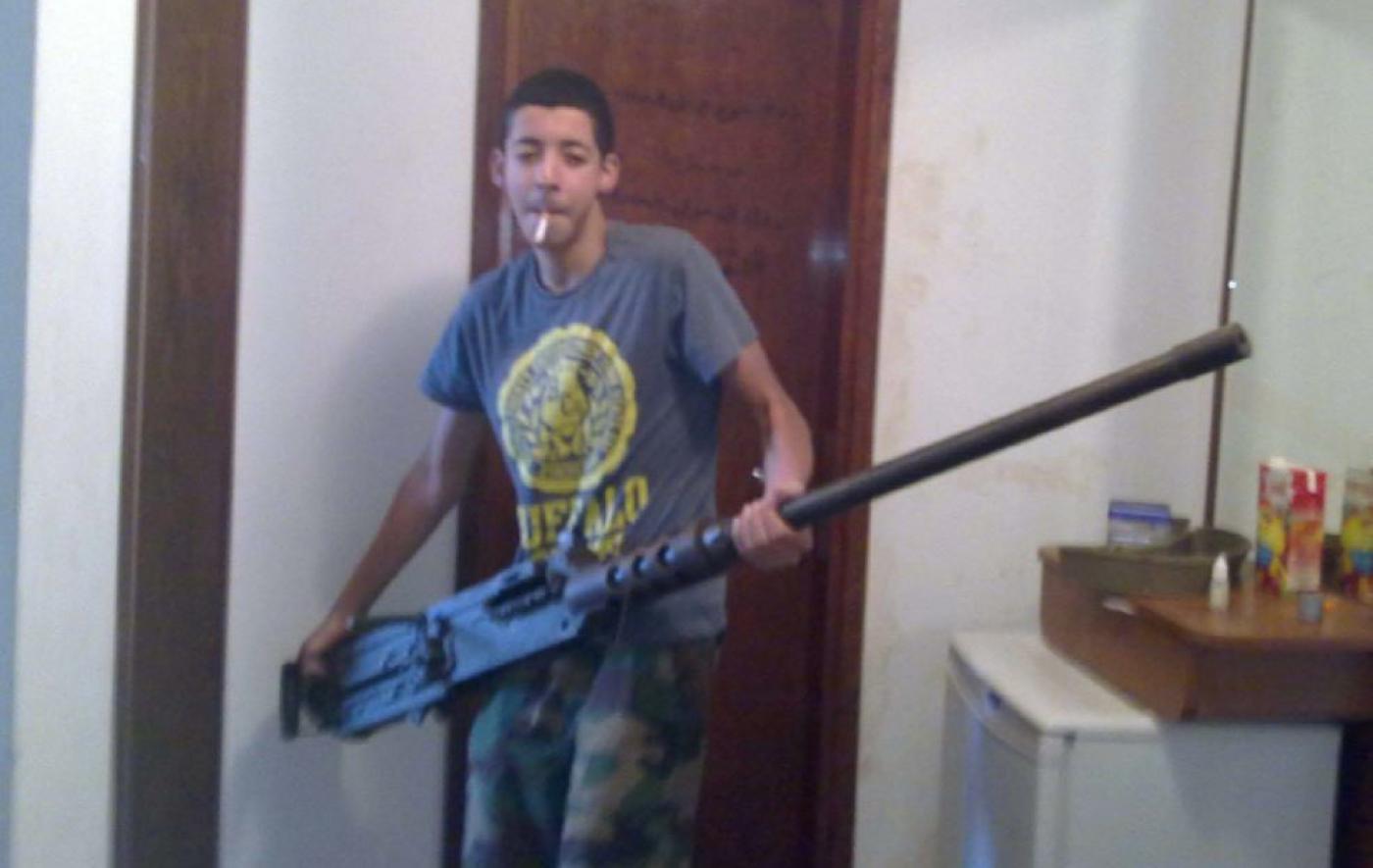
Manchester Arena Inquiry: Bomber was radicalised as teenage fighter in Libya
Manchester Arena bomber Salman Abedi was probably radicalised while fighting as a teenager in the Libyan civil war and later received training in bomb-making in the country, a public inquiry concluded on Thursday.
The inquiry also found that the UK’s MI5 security service had missed a “significant opportunity” to prevent the attack on crowds leaving an Ariana Grande concert at the venue in May 2017.
Twenty-two people were killed when Abedi, a 22-year-old British-Libyan man, detonated a bomb in a rucksack, also killing himself.
Speaking at the launch of the report of the inquiry’s findings, Sir John Saunders, the chair of the inquiry, said: “I have concluded that there were a number of contributory factors to Salman Abedi’s radicalisation. His family background and his parents’ extremist views along with their participation in the struggle in Libya played a significant part.”
He said Salman Abedi and his younger brother Hashem Abedi, who was jailed for 55 years in 2020 for his role in planning the bombing, probably had contact with “violent extremists including members of the Islamic State” who could have provided the brothers with “expertise in making a bomb and carrying our counter-surveillance measures”.
“Given what is known about them, I do not credit [Salman and Hashem Abedi] with the intelligence or sophistication to have come up with the approach they took between themselves,” Saunders wrote in the report.
MI5 has previously said that it assessed that no one other than the Abedi brothers was knowingly involved in the plot.
Commenting on the “significant missed opportunity”, Saunders said it was not possible to conclude that the bombing would have been prevented, but he said it had been due in part to “a failure by the Security Service [MI5], in my view, to act swiftly enough”.
In evidence to the inquiry, an MI5 agent admitted that two pieces of evidence received by MI5 in the months before the bombing were not shared with counter-terrorism policing because their significance “was not fully appreciated at the time”.
Salman Abedi had been investigated by MI5 as a subject of interest several times between 2010 and 2017 and had been linked to a number of other subjects of interest – but was not considered to pose a threat.
Abedi had arrived in the UK from Libya just days before the attack but had not been stopped and questioned at the airport.
The report said there was a “real possibility” that Abedi had been carrying a switch which he had acquired in Libya when he arrived in the UK, and had likely also received recent “practical instruction” in assembling a bomb.
Much of MI5’s evidence to the inquiry was heard in closed sessions because of the sensitivity of the material, with only a vetted summary heard in open court.
Thursday’s report, the third volume of the inquiry’s findings, consisted of an open document and a closed version which Saunders said contained material which “would be damaging to national security if it were to become public”.
At the conclusion of the inquiry’s hearings last year, lawyers representing families of the victims accused MI5 of citing security concerns to evade scrutiny.
In a statement on Thursday on behalf of 11 families of the victims, Richard Scorer, a solicitor at Slater Gordon, said: “Inevitably the report provides less information than we would have wished, but it is now clear that there was a failure to properly assess key intelligence about Salman Abedi, a failure to put it into proper context and, most catastrophic of all, a delay in acting on it.
“As a result of these failures, at the very least, a very real possibility of preventing this attack was lost. This is a devastating conclusion for us.”
‘A formative experience’
The inquiry heard that Abedi had travelled several times between the UK and Libya since the country’s 2011 revolution and concluded that he had probably fought there, aged 16, with Hashem, then 14, and an older brother, Ismail Abedi.
The report said it was likely that the brothers “were involved in combat” and had been influenced by their father, Ramadan Abedi, a Libyan exile in the UK who had joined rebels fighting to topple Muammar Gaddafi.
The inquiry saw photos of Salman Abedi posing with a heavy machine gun and in military fatigues in Libya in 2011.
“They [Salman and Hashem Abedi] were at an impressionable age, 16 and 14 respectively, so this would have been a formative experience,” the report said.
Ramadan Abedi was part of a circle of Libyan exiles in Manchester with links to the Libyan Islamic Fighting Group (LIFG), an anti-Gaddafi Islamist militant group then proscribed in the UK.
The inquiry said Ramadan Abedi was also friends with Abu Anas al-Libi, another Libyan exile in Manchester who was accused of masterminding the al-Qaeda US embassy bombings in Kenya and Tanzania in 1998. Libi was captured by US forces in Libya in 2013 and died in US custody in 2015 before standing trial.
“Ramadan Abedi instilled in his sons extremist views and encouraged them to put those views into practice when he exposed them to training with and combat alongside Islamist militias who fought in the Libyan civil war,” the report said.
Source: middleeasteye





